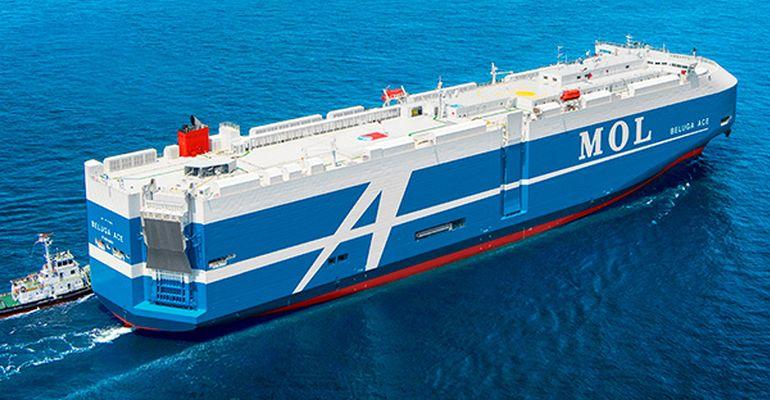The 40 ships – taking up around 5% of its entire fleet – will include oil tankers, bulkers and car carriers, and 13 of them have been confirmed for disposal.
In addition to streamlining its vessel assets, MOL is looking to dispose of non-business assets such as listed shares and real estate.
The latest move is a “defensive measure” as MOL is anticipating seaborne trade of automobiles to recover to 2019 levels from 2023 or later, and global container trade will hit bottom in July-September 2020 with total trade throughput this year decreasing by around 25% from 2019.
MOL anticipates that trade will recover to near the 2019 level only from 2022, in a supposedly post COVID-19 era.
Cargo movement of raw materials for steep production will start to recover in 2021, but recovery to 2019 level will likely take place from 2022 or later. Cargo movement of grain, however, is expected to be relatively steady based on demand for food.
Demand for steel products in China, which accounts for about 50% of global demand and production, will remain strong, according to MOL, but steel products imports to ASEAN5 and Europe/US may decline significantly depending on the COVID-19 situation.
In the oil market, crude tanker demand rose sharply for offshore oil storage due to the rapid decline in petroleum demand and low oil prices, but the tanker charter market is expected to fall as offshore oil storage decreases from the second half of 2020.
“We conclude that a significant decline in ocean transport volume and a restrained stance on customers’ investments will be unavoidable in the foreseeable future. Based on the idea that we need defensive measures first of all, we will immediately reduce our market exposure and review investment plans,” MOL stated.
“We recognise that the shift of global energy demand to LNG and renewable energy will further accelerate. In the overall offshore businesses under our strategic field, we will invest management resources selectively, while shifting our focus to these growth field,” the company added.
Specifically, MOL plans to expand into the sectors of FSRUs, LNG-to-power ships, LNG bunkering, as well as develop new energy-related businesses such as wind power generation, while the dry bulk business will seek to strengthen renewable energy-related activities such as transporting fuel for biomass power generation.
Copyright © 2024. All rights reserved. Seatrade, a trading name of Informa Markets (UK) Limited.
Add Seatrade Maritime News to your Google News feed.  |

